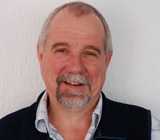 For Mandela, the sudden transition to a democratic South Africa and his ensuing bids to reconcile the racially divided nation meant he simply missed the rise in HIV infection rates among his compatriots. HIV infection rates tripled during his presidency. In pregnant women, for example, it rose from 7.6% to 22.4%.
For Mandela, the sudden transition to a democratic South Africa and his ensuing bids to reconcile the racially divided nation meant he simply missed the rise in HIV infection rates among his compatriots. HIV infection rates tripled during his presidency. In pregnant women, for example, it rose from 7.6% to 22.4%.
The transition to democracy, and his own innate cultural conservatism, traditionalism, and perhaps fear of speaking about anything involving sex (all best illustrated by his AIDS denialist successor, Thabo Mbeki), combined to allow the disease to run rampant, ironically undermining the ANC’s noble ideals of dignity and equality. By 1997 (three years after he took office), and following the dangerously high profile assassination of Chris Hani, and relatively minor political violence and right wing backlashes, the HIV pandemic unavoidably moved to the centre of Madiba’s radar.
His first and most publicised HIV/AIDS utterance came at the World Economic Forum session on AIDS in Davos, Switzerland in February 1997 when he spoke about “a new struggle,” and suggested that future generations would “judge us on the adequacy of our response.” Showing typical pragmatism and a willingness to salvage what he could (after stepping down as president), he expressed regret at not having acted earlier, saying, “It’s no use crying over spilt milk…I had no time…I had to concern myself with nation building.” His first post presidential moves included publicly opposing Mbeki’s dissident views, especially at the 2000 International AIDS conference in Durban when Nevirapine, proven to dramatically reduce mother to child HIV transmission, was being labelled by Mbeki’s government as “dangerous.” Two years later Madiba once again publicly endorsed the science of HIV by awarding the Nelson Mandela Prize for Health and Human Rights to two University of the Witwatersrand researchers, James McIntyre and Glenda Grey, both specialists in HIV treatment for women and fiercely open critics of Mbeki. Then, in June of 2002, just days before the constitutional court forced the Mbeki government to make HIV treatment available to infected pregnant women, Mandela visited HIV activist Zackie Achmat in Cape Town, pleading in vain with him to break his dramatic refusal to take his life saving ARV medicine. Achmat promised he would the moment ARV’s became publicly available. Six months later, during a tour of Médecins Sans Frontières’ (MSF’s) clinic in Khayelitsha township outside Cape Town, Mandela donned a T-shirt emblazoned with the words “HIV positive”—not dissimilar to the deeply reconciling act of pulling on the no. 6 captain’s rugby jersey of the 1995 World Cup winning Springbok rugby side. Finally, in January 2005, he announced that his 54 year old son, Makgatho, had died of AIDS—asserting that the only way to combat the virus was to talk about it openly. Achmat, who relented on his non-ARV-drug taking protest after seeing pictures of Madiba in the “HIV positive” t-shirt, believes Mandela’s support for the Treatment Action Campaign saved up to two million lives.
Competing interests: I declare that that I have read and understood the BMJ Group policy on declaration of interests and I have no relevant interests to declare.
Chris Bateman is currently news editor of the South African Medical Journal where he has reported on health matters for the past decade. He spent two years as London Correspondent for the South African Morning Group of Newspapers (1992/3).
